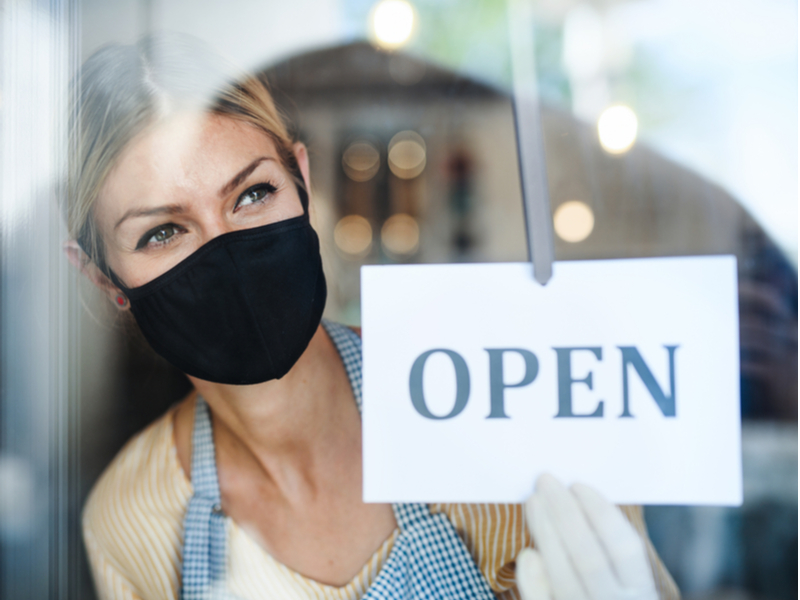Martina Gallivan explains how risk mitigation and stress testing will be a central covenant of business in the post-Covid-19 world.
Following the gobal financial crisis, structures were implemented by the ECB in order to stress test financial institutions. Key areas of risk were assessed to see what would happen if banks traded beyond certain parameters and also if they fell outside of their specific loan book solvency. Thus, if this happened, the trading of the bank would be under financial scrutiny.
These measures provided financial probity and measurable constraints for all financial institutions in which to trade within. What has not happened since then is the wholesale adoption of a similar and broader scrutiny within other industries. These include life sciences, industrial manufacturers, retail and hospitality that have never been stress tested.
“Risk mitigation strategies combined with a plan of action should be incorporated into the very culture of an organisation. Ignore it at your peril!”
A post Covid-19 world is bound to ignite the necessity for stress testing prominent major verticals. Aside from the usual organisational internal structures such as supply chain, the sourcing of outside resources like raw materials and services, the flashpoint nature of Covid-19 has laid bare the absolute necessity to stress test business, mitigate future risk and protect an organisation’s most valuable asset – their employees.
Implications for not doing so could be potentially litigious causing a far greater financial impact to the organisation whereby a lax approach to safety and protection are highlighted. This will be a further burden for business and place a broader long-term onus on organisations and business owners even after an employee leaves an organisation, opening itself up to claims of post-employment damage to their mental health.
Those organisations who implement an employee safety and protection strategy and introduce a structure now will help mitigate the likelihood of risk and protect themselves as best they can from retrospective litigation.
Safety first
So, what should employees expect when they return to work and how can they prioritise their personal safety?
Many organisations have internal wellness programmes managed by their own HR departments. However, having spoken with numerous employees from various verticals it appears that generally from an employee perspective their organisation is merely ticking a HR process box with no firm commitment by the company to continually follow up, follow through and confirm that each employee has documented their compliance and acceptance of the safety and protection internal program.
HR needs to be taking a far more significant leadership role in this drive rather than purely acting as gatekeepers where the organisation is concerned.
There needs to be innovative leadership solutions whose objective is to assist in staff retention and ensure that organisational internal policies are attractive to potential applicants. In other words, developing an enhanced cultural ecosystem.
From an employee perspective taking on the necessary safety measures is your responsibility. That means keeping to a social distance, washing hands frequently, protecting yourself either by wearing a mask at all times whilst in the workplace and looking after your health by consuming good foods, taking exercise, and acknowledging your own general wellbeing.
Adopting a more deliberate approach as you go about your daily activities and heightening self-awareness as best as possible into your general routine. These are small changes which I believe we all have a responsibility to implement.
From an organisational perspective, how do you begin to look after this body of health, i.e. the employees you have working within your company?
Flawed strategies will not cut it
Many organisations believe that by providing their employees with access to a continual supply of sugary snacks to keep their employees happy and contented is a step to improving and looking after their wellbeing. This is a flawed strategy.
Sugar is an addictive substance and has been proven to be detrimental in terms of causing obesity, diabetes, heart disease and a host of other health conditions.
It’s a false incentive as sugar has the capacity to introduce ill health which in turn leads to reduced employee productivity, sickness, and ultimately increases in sick days. The end cost is of course down to the employer. So, how do you deal with this?
My advice would be a complete overhaul of how you support your staff’s health.
There could be the implementation of a set program which is promoted and led by management. Effective leadership is hard to find and yet we all remember and admire good leaders. Hence this is every employer’s opportunity to prove to employees that they matter. What could such a program look like?
One suggestion could be to look at implementing a continual and regular health testing of staff which might be underlying cardiac and diabetes problems. Hold talks about smart nutritional education with a professional.
Teach the benefits of foods which are right for your own specific body composition. Having a regular check in with a mental health expert so that staff can vent frustrations but crucially discover their personal stress triggers and how to deal with them.
Ask any employee to name one thing that would incentivise them most within an organisation. It’s usually not financial, or promotional. In fact, it is respect. They need to feel respected and valued, and part of a cultural ethos. A sense of belonging and above all to feel that someone does actually care about their personal welfare. If organisations could grasp this philosophy, I’m convinced they would increase productivity overnight and mitigate risk for the organisation in the long term.
The slow return to the workplace will impose new working practices and strict measures that will dilute the imperceptible benefits of working for an organisation. Any additional health programme that offsets this disruption felt from Covid-19 will be positive and welcomed by staff.
Risk mitigation doesn’t just apply to existing organisations but to any new business or company which will no doubt manifest from this virus. Therefore, risk mitigation strategies combined with a plan of action should be incorporated into the very culture of an organisation. Ignore it at your peril!
Martina Gallivan is a nutritional therapist and director of RK Cardiology Healthy Living. If you are interested in learning more about health and lifestyle medicine for you or your family, contact her at martina@roseville.ie.
Published: 22 May, 2020






